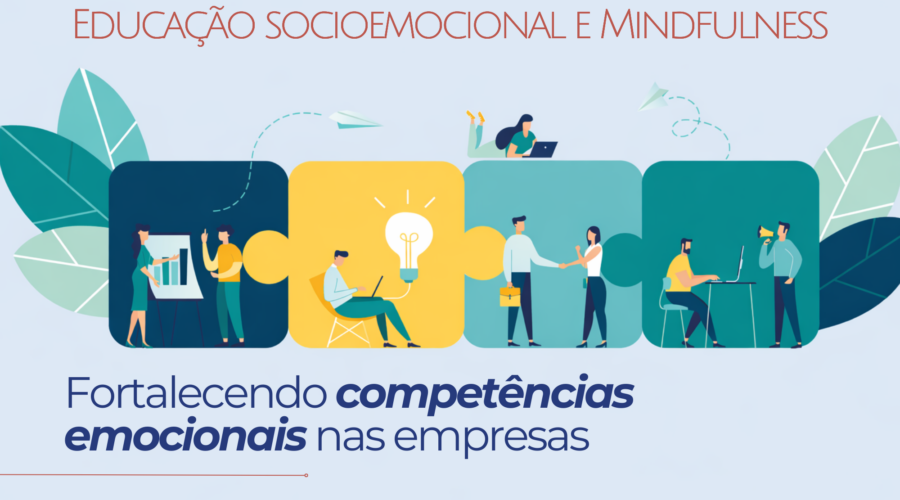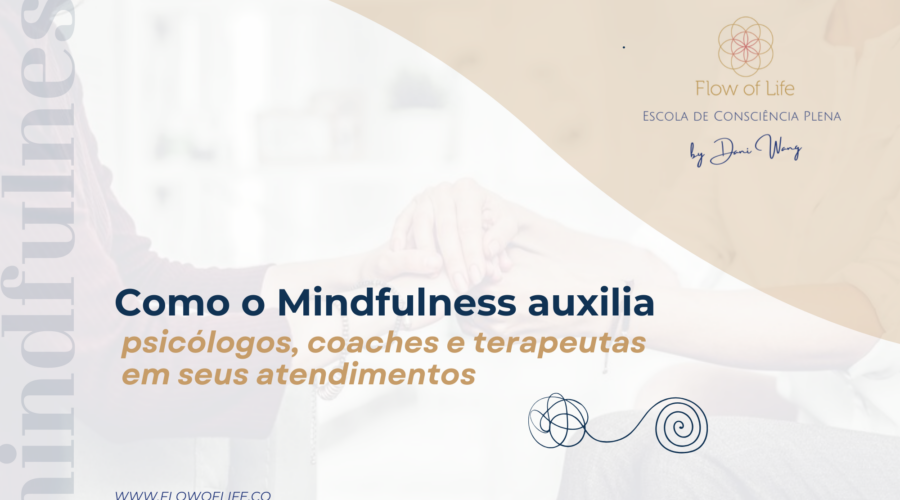The search for genuine happiness and satisfaction at work is a universal desire, but not always a reality. Many people spend their lives doing jobs that lack personal meaning or that don't connect them to a greater purpose. This has led to global movements such as the 'Great Resignation', a phenomenon that has intensified since 2021, when millions of workers quit their jobs, often without an opportunity in sight, but in search of something more meaningful. In this context, the practice of Mindfulness and training as an instructor are emerging as ways to align purpose and professional fulfillment.
Genuine happiness at work is intrinsically linked to a sense of purpose, which, according to American psychologist Michael Steger, who in 2006 led a study measuring the meaning of life, is defined as the perception that the activities carried out have meaning and contribute to something greater. Working with purpose not only increases motivation, but is also associated with greater psychological well-being and better performance, as another study published in the Harvard Business Review (2021) points out. People who find purpose in their work report greater job satisfaction and a more fulfilling life.
However, today's reality shows that many workers face deep burnout and emotional disconnection from what they do. The 'Great Resignation' is a reflection of this: according to the Microsoft Work Trend Index report (2022), 41% of workers worldwide were considering changing jobs, while in Brazil, the rate was 54%. This phenomenon reveals that many people are willing to abandon stable careers in order to pursue activities that align with their values and have a positive impact on the world.
In this scenario, training as a Mindfulness instructor represents a transformative opportunity! Teaching mindfulness is not only a way to help other people find balance and well-being, but also to cultivate purpose and genuine happiness in one's professional life. Research such as that by Shapiro et al. (2018), published in the Journal of Positive Psychology, shows that professionals who teach Mindfulness report a greater sense of fulfillment, emotional balance and connection with their activities, precisely because they feel that their work makes a difference to other people's lives.
Mindfulness practice also prepares instructors to deal with the emotional and psychological challenges that arise in the professional context. Hölzel et al. (2011) showed that the regular practice of Mindfulness improves emotional regulation and reduces stress symptoms, essential factors for those seeking a job aligned with their purpose without losing personal balance.
However, in the context of work, the practice of Mindfulness offers essential principles that help cultivate genuine happiness and job satisfaction. These principles go beyond techniques, acting as foundations for a more fulfilling life aligned with purpose.
1. Full Attention to the Present Moment
One of the central principles of Mindfulness is to be completely present in the present moment. This means being aware of the tasks performed, the emotions felt and the interactions in the workplace. Often, dissatisfaction at work comes from disconnection with the simple activities of everyday life. By bringing attention to the present moment, it is possible to find beauty or meaning even in seemingly routine tasks. Studies such as Brené Brown and Ryan's (2003) show that practicing mindfulness improves engagement and job satisfaction.
2. Acceptance and non-judgment
Another fundamental principle of Mindfulness is accepting experiences as they are, without judgment. In the professional environment, this can mean dealing with challenges and frustrations in a more compassionate and less reactive way. This approach promotes a growth mindset, allowing professionals to better deal with criticism and stressful situations, without losing focus on the greater purpose.
3. Purpose and Intention
Mindfulness invites us to work with intention, connecting our actions to what really matters. At work, this means aligning daily activities with a greater purpose, which directly contributes to a sense of fulfillment. A study by the University of California (2019) showed that professionals who work with purpose report greater emotional resilience and motivation at work.
4. Compassion and Empathy
The practice of Mindfulness develops the ability to put yourself in the other person's shoes and act with empathy. In the workplace, this creates more human and collaborative relationships, strengthening the bonds between teams and promoting a more positive environment. Professionals who incorporate this principle report greater satisfaction, as they perceive the connection with others as a source of joy and meaning.
5. Gratitude and Contentment
Finally, Mindfulness teaches us to cultivate gratitude for what we already have and to value small achievements. At work, this practice changes the perspective, helping professionals to see the positives and celebrate progress, rather than focusing only on difficulties.
These principles, when integrated into professional life, transform work into an extension of personal purpose, promoting genuine happiness and lasting satisfaction. In today's scenario, marked by emotional exhaustion and the search for meaning, Mindfulness offers a powerful answer for those who want to reconnect with themselves and with what really matters.
If you are looking for this transformation in your professional life and want to help other people do the same, becoming a Mindfulness instructor at Flow of Life - School of Mindfulness could be the next step. During our training, you will learn to live and teach these principles, creating an impact both in your life and in the lives of others.
Access our contact and start your journey with us. Align your profession with your purpose and discover how you can cultivate genuine happiness and satisfaction in unimaginable ways!




